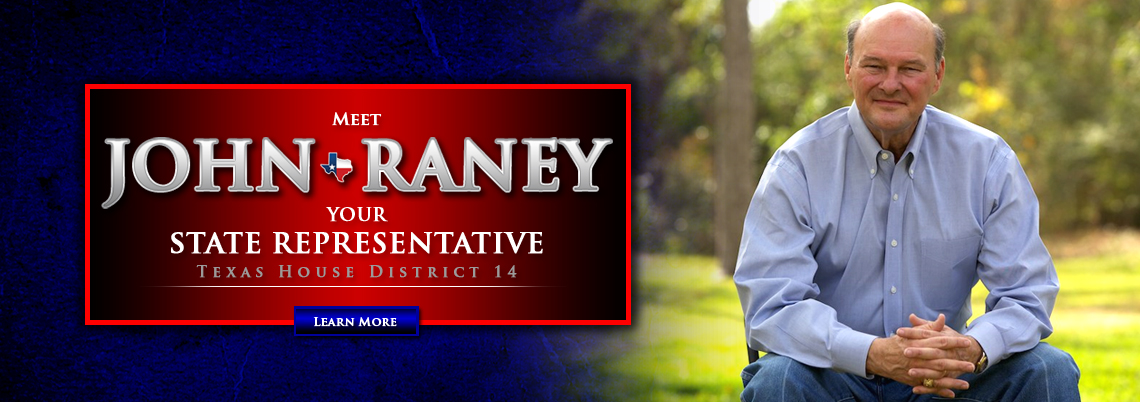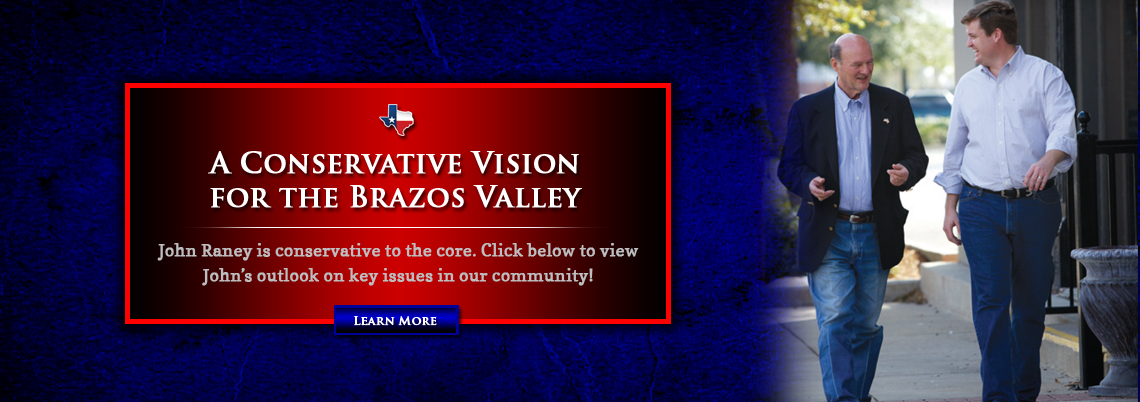Meet John Raney
A life-long resident of Brazos County, a small business owner for over 40 years, and a member of the Class of ’69, John Raney has a deep understanding and great passion for his community. As an experienced and engaged leader, he has dedicated his life to building the Republican Party and strengthening the conservative movement in Texas. John considers it a great honor to serve as State Representative for District 14 in the Texas Legislature, and values the trust placed in him for this responsibility. He has the experience and knowledge to get the job done, applying common sense, making educated decisions, and staying true to his conservative principles. Read more ›
In The News
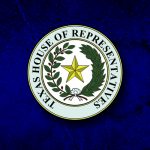
Austin, TX - Today, State Representative John Raney (Bryan/College Station) filed HJR 152 that would allow Texans to vote on a constitutional amendment to modernize the organization and procedures of the Texas Legislature. Currently, the Texas Legislature convenes its regular session on the second Tuesday of January in odd numbered years for 140 days. A […]


Austin, TX - Today, State Representative John Raney (R-Bryan/College Station) filed House Bill 1694 that would protect from prosecution any Texan who calls 911 to aid an individual who appears to have overdosed as well as the person for whom aid is sought. The intent is to remove the potential barrier of liability concerns, shifting […]

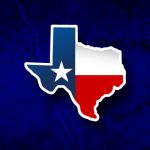
Austin, TX - Today, the Speaker of the Texas House of Representatives, Dade Phelan (Beaumont), released the House committee appointments for the 87th Legislature. State Representative John Raney (Bryan-College Station) has once again been appointed to the House Committees on Appropriations and Higher Education. “Because of Texas A&M University and BCS’s ever-growing economy, we have […]

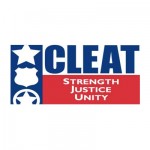
Combined Law Enforcement Associations of Texas (CLEAT) congratulates State Representative John Raney for his commitment to law enforcement during the 86th legislative sesson by presenting him with “Best of House” award. Due to COVID-19 restrictions, CLEAT was unable to present the award in person to Representative Raney. CLEAT fought hard to raise professional standards while […]




